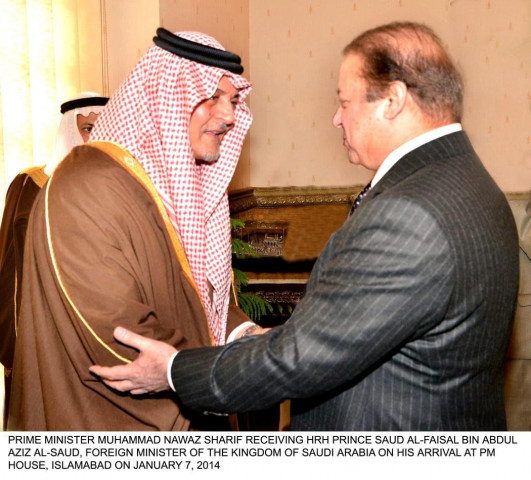Saudi mission
Assertion from Saudi foreign minister that he was merely on ‘friendly visit’ to Pakistan does not carry much weight.

Saudi foreign minister Saud alFaisal shakes hands with Prime Minister Nawaz Sharif in Islamabad. PHOTO: PID

The assertion from the Saudi foreign minister that he was merely on a ‘friendly visit’ to the country does not carry much weight under the circumstances. The advice to Islamabad regarding not ‘destabilising’ matters adds to this perception. Intervention in our internal matters from the Kingdom of Saudi Arabia is not new and hence Prince Saud’s statement needs to be taken with a pinch of salt. The cries of sovereignty and related matters we hear when Washington is referred to do not seem to go up. There are different rules for different countries. A Saudi rescue of General (retd) Musharraf would be ironic. Just around 14 years ago, the Saudis had whisked away, from the prison cell where he had been placed by General (retd) Musharraf, a certain man named Mian Nawaz Sharif. Mr Sharif’s government continues to insist there will be no deal.
But deep down, we know the power the Saudis wield, and the fact that the final call may well lie with them, even if this means a trial that could bring up many key issues and establish important precedents in a country ruled by the military for most of its 66 years may never reach a conclusion. For us, as a nation, this is bad news.
Published in The Express Tribune, January 9th, 2014.
Like Opinion & Editorial on Facebook, follow @ETOpEd on Twitter to receive all updates on all our daily pieces.














COMMENTS
Comments are moderated and generally will be posted if they are on-topic and not abusive.
For more information, please see our Comments FAQ